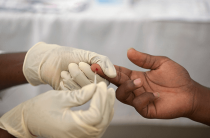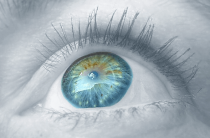In modern medical practice, no allergic disease is a reason to abstain from pregnancy. The most important thing that needs to be done is to pay attention to preventive measures, as well as strictly follow the medical prescriptions, which the attending physician will acquaint you with without fail.
Often, pregnant women notice allergy symptoms for the first time. It is observed during the first trimester of pregnancy. This kind of development of allergic symptoms is due to such a phenomenon as toxicosis at the initial stage of pregnancy. Since the body of a pregnant woman is completely rebuilt in order to prepare for bearing a child. It is not uncommon for a woman to only guess that she is pregnant when she only discovers symptoms of an allergy to those products or other components that did not previously cause an allergic reaction.
No matter how absurd it may sound, but during pregnancy, another variant of the development of an allergic disease is possible, directly opposite to the first. It is due to the fact that pregnancy, like any stress for the body, causes an increase in the secretion of cortisol. Cortisol is a hormone that, in addition to adaptive reactions, is involved in the removal of allergic symptoms. If a woman has a significantly increased level of this hormone during pregnancy, then the course of even acute manifestations of allergies may recede. This effect persists for some time after pregnancy and wears off as cortisol levels stabilize.
Allergy symptoms in pregnant women
- Allergic rhinitis, manifested by a runny nose, nasal congestion, swelling of the nasopharynx, sneezing;
- Allergic conjunctivitis: redness of the eye, tearing, increased irritability, in bright light, swelling of the eyelids;
- Allergic dermatitis is manifested by the formation of lesions, with small round nodules filled with a cloudy yellow or colorless substance. Over time, they form a dry crust on the surface. Places of occurrence of allergic dermatitis are very itchy.
- Allergic urticaria is characterized by the appearance of redness, which has an increased local temperature;
- Allergic asthma are symptoms of bronchial asthma that develop in response to an allergen.
Means for diagnosing allergies in pregnant women
Diagnostic measures that are carried out in order to identify the cause of allergic reactions during pregnancy have strict specifics. It manifests itself in a significant narrowing of the range of diagnostic measures. In-vivo diagnostic methods are completely excluded from the list of diagnostic tools. These measures, in case of allergic reactions, involve monitoring the behavior of the body, with direct exposure to stimuli. To date, this direction of diagnosis is the most effective, since it gives a 100% diagnostic result, subject to the competent use of these tools.
But the use of these diagnostic tools is associated with a high risk of adverse reactions, since in this case, the patient is directly exposed to the allergen. During pregnancy, their consequences, even if they were successfully stopped, can directly threaten the health of the child and the normal course of pregnancy.
Diagnosis of allergies in pregnant women is carried out exclusively by means of in-vitro diagnostics. When using them, the contact of the allergen with the blood material is carried out in laboratory conditions, isolated from the body itself. The levels of IgE and IgM antibodies have diagnostic values. These antibodies are involved in the development of an allergic reaction and their increase in response to contact with an allergen serves as a criterion for diagnosing the nature of the allergen.
Allergy medicines for pregnant women
Any drug used during pregnancy has the potential to affect the fetus. This applies even to those drugs that have not revealed any negative effects in the course of experimental studies and practice of use.
Antihistamines
Substances with antihistamine action are the main drugs that are used to treat the symptoms of allergic diseases. Many antihistamines are prohibited during pregnancy because they cause negative side effects that can affect both the normal course of pregnancy and the health of the unborn child. Even if you took certain drugs before pregnancy, as directed by a doctor, during pregnancy, it is imperative to completely revise the treatment tactics using medications.
|
Means prohibited for use in pregnant women |
|
| Astemizol | a modern antihistamine drug, the use of which generally passes without side effects. But it is not used to treat allergic reactions in pregnant women, since it can have a toxic effect on the fetus. |
| promethazine | an antihistamine that is not used during pregnancy. Tavegil is not used in pregnant women because it has a negative effect on the fetus. |
| Diphenhydramine | the use of this oldest antihistamine drug is prohibited during pregnancy, since in this case, its activating effect on the muscles of the uterus can cause miscarriage |
Most often, in the state of pregnancy, treatment occurs with the use of drugs such as diazolin, clartitn, cterin, cetrizin, erius. Their appointment takes place under the strict supervision of a doctor, provided that other non-drug drugs are not able to have a proper effect on allergy symptoms.
Corticosteroids for pregnancy
Corticosteroids are drugs that have an anti-allergic effect, due to a depressant effect on the immune system. Their use in pregnant women is a highly controversial issue, since they can cause extensive side effects, both in the mother and in the unborn child. But in some cases, with severe allergic manifestations, they simply cannot be dispensed with.
In the treatment, corticosteroids are prescribed for the treatment of diseases such as bronchial asthma of an allergic nature, urticaria, allergic dermatitis, as well as for the relief of anaphylactic shock and Quincke's edema, as an emergency treatment.
Corticosteroid drugs come in a variety of forms. Corticosteroids are universal in the form of tablets and injections. With their use, side effects most often occur. Creams, ointments, and gels are used to treat allergic dermatitis and urticaria, while corticosteroid drops are used to treat allergic rhinitis and conjunctivitis.
Side effects of corticosteroids:
- Gastritis and stomach ulcers;
- Decreased muscle mass;
- Weakening of the articular-ligamentous apparatus;
- Decreased function of the adrenal cortex;
- Decreased bone strength;
- Increased blood sugar levels;
It is also worth considering that in addition to the general effects of corticosteroid drugs, there are also specific side effects that are characteristic of certain forms of their use. For example, the use of corticosteroid ointments can cause dryness, atrophic changes, and acne. While the use of nasal drops can cause nosebleeds and weakening of the nasal septum.
Modern studies have shown that the risk of occurrence in women with allergic asthma during pregnancy, when using corticosteroid inhaled drugs in low and medium doses, there has been no increased risk of developing fetal anomalies. At this point, they did not differ from the control group, which did not use corticosteroids. At the same time, it should be noted that the risk of fetal oxygen starvation caused by asthma attacks is much higher.
To date, there are clinical data that relate to the use of corticosteroid ointments, creams and gels during pregnancy. They confirm the high degree of safety of corticosteroids for local use. At the same time, the tactics of treatment with corticosteroid drugs, in the form of ointments, creams and gels, during pregnancy comes down to the fact that corticosteroid drugs of minimal strength are first prescribed and the transition to the use of a stronger drug is justified only if the use of the previous medication did not bring a satisfactory result. .
Means of immunotherapy
Immunotherapy is a means of combating allergic diseases, which is based on the gradual decrease in the body's sensitivity to the allergen. This is achieved by the systematic introduction of the minimum dosages of the allergen, in the form of a solution. Most effectively, the use of immunotherapy has proven itself in such types of allergies as:
- Allergy to mold spores;
- Allergy to dust;
- Allergy to flowering and poplar fluff;
- food allergy;
- Allergy to animal fur
Unfortunately, a person cannot always eliminate contact with an allergen. For example, if you are allergic to dust, unfortunately, there is no escape from its source. Therefore, immunotherapy agents for the treatment of allergies are very relevant today. Immunotherapy is not used during pregnancy, it should be carried out even before the start of the intended conception. Depending on the nature of the allergen, immunotherapy can be carried out by injection, inhalation or other methods of introduction into the body.
Means of prevention in pregnant women
It is much easier and safer not to eliminate allergy symptoms with medication, and not to allow them to appear, due to the obstacle to interaction with the allergen.
If you are allergic to plant pollen, wet cleaning as often as possible. Do not walk outside during the day, as well as during low humidity and strong winds. After returning from a walk, change clothes, wash and clean those parts of the body that were not protected by clothes when walking. Purify the air at home with the help of special devices with a filter.
If you are allergic to dust, it is also necessary to do wet cleaning as often as possible. Do not forget to knock out clothes, carpets, as well as soft toys. In these places, a large amount of dust often accumulates.
If you suffer from a food intolerance, first find out the specific foods that trigger your allergic reaction. Refrain from using them. It is very important for allergy sufferers with food intolerance to find out the composition of the product before buying it in the store, eating in restaurants, as well as in catering places.
Use a special hypoallergenic diet during pregnancy and lactation. The exclusion of foods that can increase the manifestations of allergies helps to reduce the symptoms of the disease.















